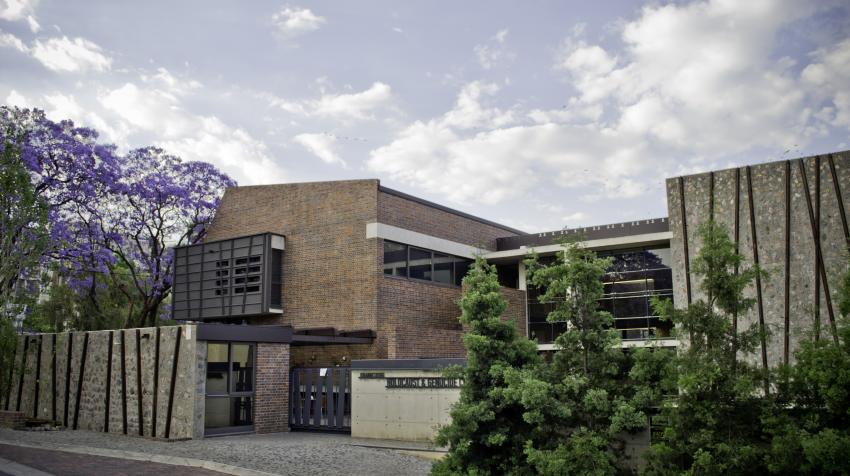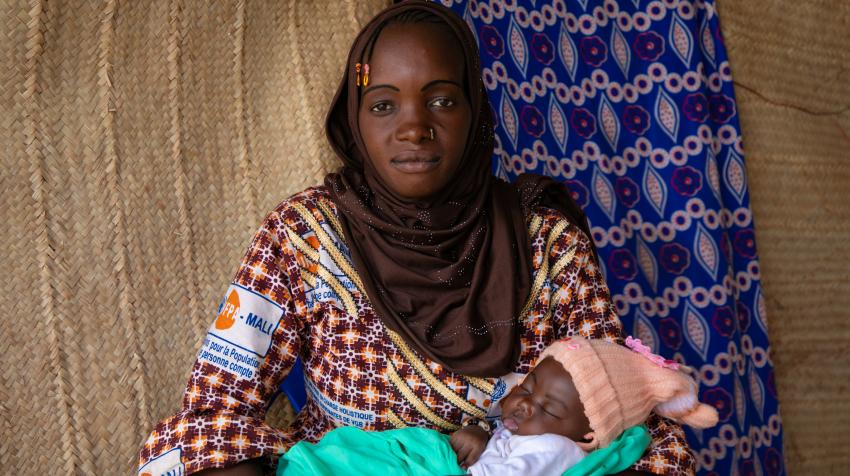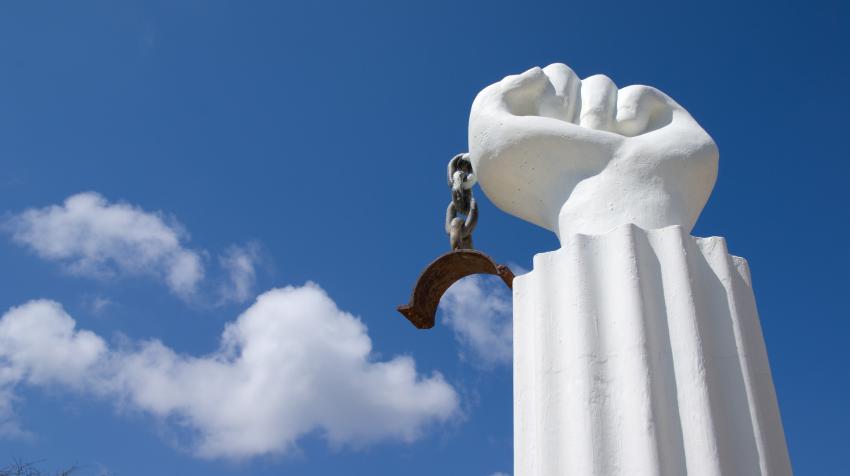25 January 2024
On 27 January, the world marks the International Day of Commemoration in Memory of the Victims of the Holocaust. I reflect today on the need to learn from the stories of survivors, refugees, and those who did not survive, as individuals rather than numbers. I do so as the founder and Executive Director of the Johannesburg Holocaust & Genocide Centre (JHGC), a space of memory, education, dialogue and lessons for humanity, but also as a daughter of a Holocaust survivor of many concentration camps, Moses Turner, who survived thanks to the rescue efforts of Oskar Schindler. Going beyond the statistics of the 6 million victims of the Holocaust is critical. Learning from one narrative allows us to concentrate on the lives of those who perished and not only on the moment of their death. In doing so, we may begin to understand the huge loss, the possible future families that were never born, thoughts that were never formed, inventions and works of art that were never created—all the potential the world was robbed of through mass murder. Humanizing the victims is critical amid the growing dehumanization and lack of empathy we are witnessing today.
In a world of increasing numbers of refugees seeking safety, we can learn about one German Jewish refugee who settled in South Africa and became a great educator and activist. Franz Auerbach (1923–2004) was born in Frankfurt an der Oder, Germany, to Erich and Alice Auerbach. Erich was an engineer who received an Iron Cross in the First World War, a conflict in which Erich’s younger brother was killed. As a German patriot, he had no wish to leave his beloved country when the Nazis came to power. Alice, a dental surgeon, was barred from her work at a state hospital. In 1936, after conditions worsened, the family left Germany for South Africa. Franz’s parents were unable to practise their professions in Johannesburg, so his father sold sausages and his mother worked as a machinist in a factory. Franz became a teacher and a human rights activist during apartheid. He ran the Funda Centre for teachers in Soweto and served as President of the South African Institute of Race Relations. Franz described how he made connections between his Holocaust memory and the lessons he learned. His words are critical, especially in our challenging times of growing antisemitism and “othering”:
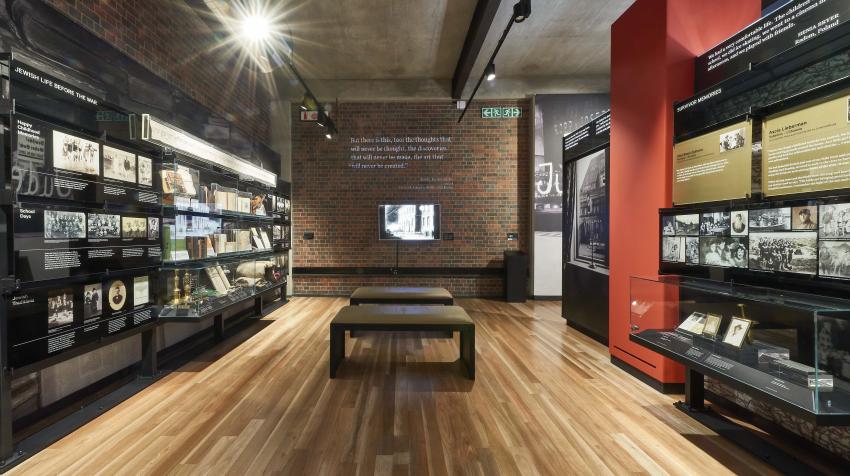
“When my cousin was denied studying for a doctorate at university because Nazi rule forbade Jewish students the right to be granted PhDs, we realised that we no longer had a future in Germany. I was acutely aware of the inequality in education in South Africa and became a human rights activist.”
We are living in very difficult times, witnessing so much pain, loss of lives, brutality, increased hate speech against the “other” and growing antisemitism. It is precisely in this time, when critical thinking, knowledge, reflection on complexity and nuance, empathy and humanity are so urgently needed, that we should contemplate deeply and derive encouragement from the stories of survival and resilience, allyship, and the triumph of the human spirit that emerged from the tragedy of the Holocaust, and make our own connections with them.
Aware that genocide always starts with words, JHGC encourages all to raise their voices against instances of hate speech and related human rights violations in our own communities. Failure in this regard risks generational trauma. History and our shared humanity teach us that there is no place for hatred or discrimination of any kind in our world, and instead call for our compassion towards all victims. In the words of Auschwitz survivor William Schiff, “You kill yourself when you hate. It's the worst disease in the world.”
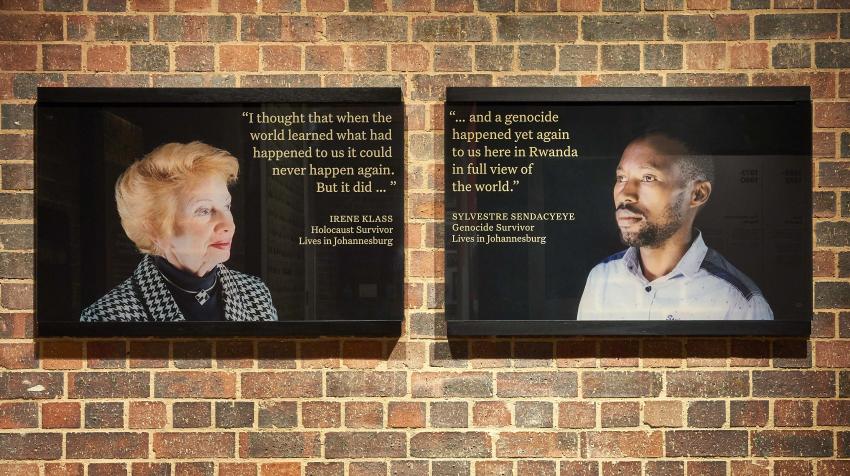
Holocaust education and its lessons can empower future leaders to think critically. To that end, JHGC and Aegis Trust, through partnership with the Salzburg Global Seminar and the support of many organizations, developed a youth leadership initiative, the Change Makers Programme (CMP), for student and thought leaders. It strives to build resilience and resistance to violence, helps develop the necessary skills to challenge extremist ideas and encourages participants to become change makers in their society. The Programme inspires ethical leadership through teaching about the histories of extremism and genocide during the Holocaust, and in Cambodia (1975–1979) and Rwanda (1994). CMP also motivates participants to develop their own country-focused histories. So far, the Programme has been launched in 13 countries in Africa; in November 2023, it was established in Asia, as well.
Learning about the Holocaust and how it relates to contemporary human rights issues can help shine a light on prejudice, discrimination and “othering”. By emphasizing the importance of empathy, critical thinking and personal responsibility, we can become active voices against hate speech and human rights violations.
In the JHGC exhibition, Warsaw ghetto survivor Irene Klass and Rwandan survivor Sylvestre Sendacyeye warn us that the world has not yet learned from their stories. They urge us to learn from them now.
The UN Chronicle is not an official record. It is privileged to host senior United Nations officials as well as distinguished contributors from outside the United Nations system whose views are not necessarily those of the United Nations. Similarly, the boundaries and names shown, and the designations used, in maps or articles do not necessarily imply endorsement or acceptance by the United Nations.

